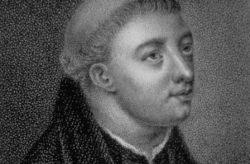 Everyone, but everyone, is a professional these days. Even benefit scroungers like Dr No are professional benefit scroungers. Sociologists over the years have woven so many strands and threads through the social construct of professionalism that the term has become so broad and debased as to be meaningless. To borrow from a line attributed to the poet John Lydgate and later famously adapted by Abraham Lincoln, you can professionalise some people all of the time, perhaps even others some of the time, but you definitely can’t professionalise all people all of the time. If everyone is a professional, then no one is.
Everyone, but everyone, is a professional these days. Even benefit scroungers like Dr No are professional benefit scroungers. Sociologists over the years have woven so many strands and threads through the social construct of professionalism that the term has become so broad and debased as to be meaningless. To borrow from a line attributed to the poet John Lydgate and later famously adapted by Abraham Lincoln, you can professionalise some people all of the time, perhaps even others some of the time, but you definitely can’t professionalise all people all of the time. If everyone is a professional, then no one is.
So Dr No uses professional in it’s oldest sense: being, or part of, one of the three original learned professions: divinity, law and medicine. However divergent their purposes and methods, these three nonetheless possess a number of defining characteristics: long academic preparation of the novice, entrance rites of varying degrees of extravagance, the award of special privileges, and the autonomy to exercise independent professional judgement. So long as the actions are not absurd – in medicine the standard test of absurdity is the Bolam test – then the practitioner can do as he sees fit.
Professional autonomy is powerful, heady stuff. It carries the burden of great responsibility, but within that burden lie the seeds of immense satisfaction. It is in the exercise of that autonomy, in facing a challenge that calls for judgement and calling it right, that doctors find their greatest professional moments. We might even say autonomy is the opium of the profession. Without autonomy, practice dulls to slavish drudgery, a mindless stroll through the Mogadon fields of guidelines and pathways. For patients, autonomy is the magic that enables the doctor to tailor the treatment to their needs, and so treat them as individuals, not guideline fodder or sausages to be fed into the pathway machine.
All in all, professional autonomy is at the heart of medical practice, as essential as any of the other defining characteristics, and yet over the last decade we have seen its steady erosion. GPs led the way, by signing up to performance management. In the hospitals, the rise of the hospital-as-business culture fostered a new corps of powerful managers, able to cajole and if necessary force the doctors to their whim. NICE has taken up with evidence based numerology, and issued reams of coercive guidelines: woe-betide the doctor who deviates without cast iron cause. And then there is the largest, most sustained assault on professional autonomy ever conceived: revalidation. No longer do doctors have the autonomy to decide they are fit to practice: instead, they must submit to a recurring humiliating ritual, wherein they are deemed unfit to practice until one of Stilton’s field operatives gives them the green light. Each and every one of these developments is an assault on autonomy. Taken cumulatively, they contain the myriad straws that will break many a camel’s back.
Even a cursory look at British medical blogs reveals many examples of broken backs: of senior doctors deciding enough is enough, now it is time to go. If we were to ask them individually what pains them most, Dr No suspects the common theme would be loss of autonomy. They are the old guard who remember earlier days of autonomous practice, who cannot bear to see their profession cowed and broken, nor their own practice curtailed and controlled. They have decided enough is enough, and as they leave, they will take with them all that now remains of a once autonomous profession. British Professional Medicine: RIP 2013. And God help us patients.
